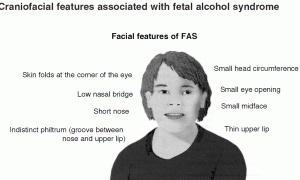
1 in 10 Americans are reported to suffer from depression, according to statistics by the Center of Disease Control. Depression is defined as a mental illness typified by worry, irritability, anxiousness, sandness and a lack of self-worth.
While depression has been used in common parlance to discuss any prolonged period of negative feelings, clinical depression usually only occurs when the mood is significant enough to affect a person’s daily life, health and well-being.
Understanding depression is integral to the proper treatment of it, and mental health professionals encourage anyone who suspects that they are experiencing depression to reach out.
The Symptoms of Depression
Depression may present itself in different ways. A patient may become apathetic and listless, and fail to engage in activities that they once found pleasant. They may find themselves feeling lost or frustrated about their state in life.
Others will find that their feelings of happiness or joy now feel empty or somehow fake. Some will report that even when they are having fun or enjoying themselves, there is a sense of wrongness or inauthentic nature to the emotion.
Depression is natural in all people to some extent. Many people will become depressed at periods throughout their lives. However, depression becomes clinical and treatable once it becomes a persistent disorder that is affecting a patient’s daily life.
Clinical depression may present itself with physical symptoms, such as a dramatic loss of weight and a lack of sleep. Those suffering from clinical depression often report feeling exhausted or drained all the time.
The Causes of Depression
Depression can be triggered by a variety of situations. Certain life events, especially those that involve a shift in hormones, can cause depression, as can sudden events such as a death in the family.
Giving birth sometimes gives rise to a syndrome called “postpartum depression”, which occurs after the birth of a child and can extend for up to a year.
Certain illnesses have also been linked to depression, especially illnesses that involve chronic pain.
There are certain mood disorders that can cause clinical depression. Bipolar disorders, seasonal affective disorders, anxiety disorders and borderline personality disorder can all cause depression or are otherwise linked to clinical depression, as is posttraumatic stress disorder.
Certain hormonal issues can also be the cause of depression and can be identified by a medical health professional.
Yet clinical depression may have no origin at all. While a very well-known disorder, the causes of clinical depression are still being studied.
The Treatment of Depression
The treatments applicable to depression depend on the root cause of the depression. Temporary states of depression, such as those brought on by grief, usually are not treated medically. Instead, these temporary states of depression may be aided by a therapy regimen or may simply fade away with time.
Other forms of depression may require medication, hormonal treatment, therapy or other surgical and medical options.
If the clinical depression is not caused by any physical disorder, a mental health specialist may suggest medications, though there are some over the counter treatments for depression. Medications are sometimes used alone and are sometimes used in combinations, but regardless, they need to be administered very carefully.
Hormonal depression is usually treated by balancing the hormones within the patient. As with medications, hormonal treatment may require a significant amount of time to begin working properly. Both hormonal treatments and other medical treatments will need to be adjusted over time.
There are other, more invasive, methods of treating clinical depression, which are only used in very serious cases. Deep brain stimulation, electroconvulsive therapy, vagus nerve stimulation and cranial electrotherapy stimulation are all either used or being studied for their applications in treating clinical depression.
Other forms of therapy are used for specific types of depression, such as the use of bright light therapy for the treatment of depression brought on by seasonal affective disorder.
The Recovery from Depression
Patients that recover from depression often feel as though a blanket has been lifted from them. Patients report that food tastes better and colors are brighter.
At the same time, however, patients with clinical depression need to be very careful about their recovery process. As with many psychiatric conditions, many patients with clinical depression will be tempted to go off of their medication, which can have disastrous effects.
Patients that have depression due to mood disorders, such as bipolar disorder, may find themselves feeling as though their medication is dampening their emotions or their creative flow. This is usually a sign that their medications simply need to be adjusted rather than discontinued entirely.
Patients that do recover through the use of medications are encouraged to continue with therapy, both to bolster their progress and to ensure that depression does not reoccur.
Learning More About Depression
1) What Is Depression? – The National Institute of Mental Health
2) What is Depression? What Causes Depression? – Medical News Today
3) Depression (Major Depression) – Mayo Clinic
4) Depression Symptoms and Warning Signs – HelpGuide.Org
5) Depression – Psych Central
6) Depression – New York Times Health Guide
Have you or a loved one faced depression? Share your experience and tips with us in the comments.




Leave a comment
You must login or register to add a new comment.